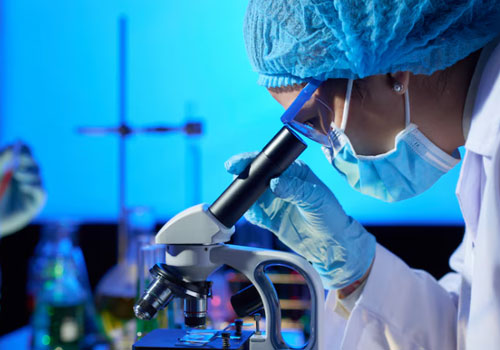| |
|
|
Cytology services involve the examination and analysis of cells under a microscope to detect abnormalities and diagnose various diseases. These services play a critical role in cancer screening, diagnosis, and management, as well as in the evaluation of infectious and inflammatory conditions. Here are some key aspects of cytology services:
Cytology services include Pap smear testing, which is used for cervical cancer screening. During a Pap smear, cells are collected from the cervix and examined under a microscope for abnormalities such as precancerous changes or cervical cancer cells. Early detection through Pap smear testing can significantly reduce the incidence and mortality of cervical cancer.
FNA biopsy is a minimally invasive procedure used to obtain cell samples from lumps or masses in various parts of the body, such as the thyroid gland, breast, lymph nodes, or organs. The collected cells are then examined cytologically to diagnose or rule out cancer, determine the nature of a lesion, or guide further diagnostic and treatment decisions.
Cytology services include the examination of cells present in body fluids such as pleural fluid, ascitic fluid, cerebrospinal fluid (CSF), and urine. This analysis can help diagnose conditions such as cancer, infection, inflammation, or autoimmune diseases affecting the respective body systems.
Cytology services involve the examination of cells obtained from respiratory specimens, including sputum samples, bronchial washings, bronchoalveolar lavage (BAL) fluid, and bronchial brushings. This helps in diagnosing respiratory conditions such as lung cancer, infections, and inflammatory lung diseases.
In addition to cervical cancer screening, cytology services may also be used for the screening and diagnosis of other cancers, including breast cancer (using nipple discharge cytology), ovarian cancer (using ascitic fluid cytology), and gastrointestinal cancers (using brushings or washings from the GI tract).
Cytology services adhere to strict quality control measures to ensure accurate and reliable results. This includes standardized protocols for specimen collection, processing, staining, and interpretation, as well as proficiency testing and ongoing training for cytotechnologists and pathologists.
With advancements in technology, cytology services may also involve telecytology, where digital images of cytological specimens are transmitted electronically for remote interpretation by pathologists or cytotechnologists, enabling timely diagnosis and consultation, especially in underserved areas.

|
|
|
|
|